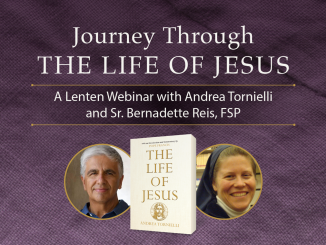 I had the pleasure of attending an evening of reflection at the McDonough Chapel of Saint Xavier University last night to listen to Dr. Barbara Reid, OP, Professor of New Testament Studies, Vice President, and Academic Dean at the Catholic Theological Union at Chicago.
I had the pleasure of attending an evening of reflection at the McDonough Chapel of Saint Xavier University last night to listen to Dr. Barbara Reid, OP, Professor of New Testament Studies, Vice President, and Academic Dean at the Catholic Theological Union at Chicago.
Barbara did a wonderful job of helping us to reflect on the meaning of the Cross of Jesus, very appropriate for the Lenten season. She talked about how most people will respond to the question, “why did Jesus die on the Cross?” by saying, “to save us from sin.” Her main point was that, much of our Cross imagery (such as atonement, ransom, sacrifice, scapegoat, etc.) allows sin to take center stage instead of selfless love.
She pointed out that in Mark’s Gospel (8:35), when Jesus says that “whoever wishes to come after me must deny himself, take up his cross, and follow me,” he is talking about a very specific type of suffering, namely, suffering that is a direct result of the choice we have made to follow him. Unfortunately, we apply the image to ANY kind of suffering (e.g. having an abusive spouse, enduring a chronic condition, dealing with a terminal illness) and say that “we each have our cross to bear” and strive to endure the situation quietly and without complaint. While we certainly seek to respond virtuously to such situations, these are not specifically what it means to “pick up one’s cross” and follow Jesus since these sufferings are not the result of discipleship but rather of the unfairness of life. This insight is profoundly powerful, especially for those who have been quietly enduring abuse or injustice.
Barbara emphasized that we need to regain a notion of the Cross as a symbol of self-surrender that gives birth to new life. She led us through the Passion according to John, which we hear on Good Friday, to show us how Jesus repeatedly focuses on the notion of laying down one’s life for one’s friends, being born again, and the image of living waters. Jesus’ last words in John’s Gospel are “It is finished.” The word finished – a form of the Greek word telos – is the same word used in John 13, just before Jesus washes the feet of the Apostles: “He loved his own in the world and loved them to the end” which means that he loved them completely. In other words, when Jesus says, “It is finished,” as he dies, he is not uttering words of defeat (e.g. “I’m a goner!”) but is rather saying that his act of love is now complete…he has shown us what it takes to be born again. Immediately, the soldier pierces Jesus’ side and blood and water flow forth – that which flows forth from the womb following birth. Jesus is then wrapped in linen, much as a newborn is swaddled. The message is clear: the Cross has given birth to new life through the ultimate act of selfless love!
Powerful stuff! I hope that I have not done a disservice to Barbara Reid’s thorough presentation by attempting to summarize it here in such a short space, but I wanted to share these thoughts with you as we move forward during this Lenten season.
Thank you, Barbara, for sharing your insights and wisdom with us!




Joe, thank you so much for sharing. I wouldn’t have thought of this, or even reflect, from Barbara’s perspective. The second paragraph would most certainly be my response if someone asks me,
It’s a pleasure to share such wonderful thoughts, Carina!
Very powerful! I needed to read that today. Thank you for sharing!
Blessings,
Lillian Cruces
St. Mary of the Assumption Church
Whittier, CA
You’re welcome, Lilian.
Thanks for this. Hit me hard!!